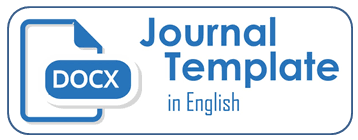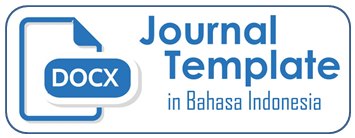LITERASI KEUANGAN DALAM HUBUNGANNYA DENGAN KEBERLANGSUNGAN UMKM DAN KESEJAHTERAAN MASYARAKAT DI KABUPATEN GIANYAR
DOI:
https://doi.org/10.26486/jramb.v7i1.1609Keywords:
Literasi Keuangan, Keberlangsungan Usaha, Kesejahteraan Masyarakat, UMKMAbstract
Setiap individu perlu memiliki life skill berupa pengetahuan mengenai literasi keuangan dalam menjalani kehidupan sehari-hari. Pentingnya literasi keuangan tersebut, nyatanya tidak diimbangi dengan tingginya tingkat literasi keuangan di Indonesia.  Usaha Mikro Kecil dan Menengah (UMKM) menjadi salah satu pihak yang diharapkan dapat meningkatkan pemahaman mengenai literasi keuangan demi terwujudnya keberlangsungan usaha dan kesejahteraan masyarakat. Adapun tujuan dalam penelitian ini adalah untuk mendapatkan gambaran yang mendalam mengenai literasi keuangan dalam hubungannya dengan keberlangsungan UMKM dan kesejahteraan masyarakat di Kabupaten Gianyar. Literature reviewdigunakan sebagai metode penelitian dalam penelitian ini. Hasil dalam penelitian ini adalah terdapat hubungan antara literasi keuangan dengan keberlangsungan UMKM dan kesejahteraan masyarakat, sehingga penting apabila digalakkan program agar pelaku usaha meningkatkan literasi keuangan. Terlebih terdapat beberapa hal yang menjadi kelemahan dalam mewujudkan literasi keuangan UMKM di Kabupaten Gianyar diantaranya adalah kurangnya edukasi dan pengetahuan pelaku usaha mengenai keuangan. Berdasarkan kendala tersebut, maka literasi keuangan bagi pelaku UMKM dapat ditingkatkan melalui program edu-finance meliputi pelatihan-pelatihan yang mencakup planning(perencanaan), implementation (pelaksanaan) dan follow-up (tindak lanjut).References
Adomako, S., & Danso, A. 2014. Financial Literacy and Firm Performance :The Moderating Role of Financial Capital Availibility and Resource Flexibility. International Journal of Management and Organizational Studies, 3(4), 1-8.
Akmal, H., & Saputra, Y. E. 2016. Analisis Tingkat Literasi Keuangan. Jurnal Ekonomi Dan Bisnis Islam-Volume 1, No 2, 235-244.
Albert, M.; Hahnel, R. 2005. Traditional Welfare Theory. www.zmag.org/books/1/html (diakses tanggal 2 Januari 2019)
Aribawa, Dwitya. 2016. Pengaruh Literasi Keuangan Terhadap Kinerja Dan Keberlangsungan Umkm Di Jawa Tengah. Jurnal Siasat Bisnis Vol. 20(1)
Bilal, M., & Zulfiqar, M. (2016). Financial Wellbeing is the Goal of Financial Literacy. Research Journal of Finance and Accounting, 7(11), 94–103.
Bintarto. 1989. Interaksi Desa-Kota dan Permasalahannya. Jakarta: Ghalia Indonesia.
Bottenberg, K., Tuschke, A., & Flickinger, M. 2017. Corporate governance between shareholder and stakeholder orientation: Lessons from Germany. Journal of Management Inquiry, 26(2), 165-180.
Candra, J. W., & Memarista, G. (2015). Faktor-Faktor yang Mempengaruhi Financial Satisfaction pada Mahasiswa Universitas Kristen Petra. Finesta, 3(2), 1–6.
Catlin, J. R., Luchs, C. M., & Phipps, M. 2017. Consumer perceptions of the social vs. environmental dimensions of sustainability. Journal of Consumer Policy, 40(1), 245-277.
Chen, H. and Volpe, R. 1998. An analysis of personal financial literacy among college students. Financial Review Service.
Dahmen, P., dan RodrÃguez, E. 2014. Financial literacy and the success of small businesses: An observation from a small business development center. Numeracy. 7(1). 3.
Desiyanti, R. (2016). Literasi dan inklusi keuangan serta indeks utilitas umkm di padang. BISMAN Jurnal Bisnis & Manajemen, 2(2), 122–134.
Draxler, A., Fischer, G., dan Schoar, A. 2014. Keeping it simple: Financial literacy and rules of thumb. American Economic Journal: Applied Economics. 6(2). 1-31.
Falahati, L., Sabri, M. F., & Paim, L. H. (2012). Assessment A Model of Financial Satisfaction Predictors: Examining The Mediate Effect of Financial Behavior and Financial Strain. World Applied Sciences.
Fatoki, O. 2014. The Financial Literacy of Micro Entrepreneurs in South Africa. Journal of Social Science. 4.
Fernandez-Feijoo, B., Romero, S., & Ruiz, S. 2014. Effect of stakeholders’ pressure on transparency of sustainability reports within the GRI framework. Journal of Business Ethics, 122(1), 53–63.
Freeman, R. E. 2010. Strategic management: A stakeholder approach. New York, NY: Cambridge University Press.
Garg, N., & Singh, S. 2018. Financial Literacy Among Youth. International Journal of Social Economics, 45(1), 173–186.
Hansen, E. G., & Schaltegger. 2016. The sustainability balanced scorecard: A systematic review of architectures. Journal of Business Ethics, 133(1), 193-221.
Hartomo, Deny Dwi dan Cahyadin, Malik. 2013. Pemeringkatan Faktor Keberlangsungan Usaha Industri Kreatif di Kota Surakarta. Jurnal Ekonomi dan Kebijakan Publik. Vol. 4, No. 2, 225-236.
Hudson, M., A. Smart dan M. Bourne. 2001. Theory and Practice in SME Performance Measurement Systems. International Journal of Operations & Production Management. Vol. 21 No. 8. Hal: 1096-1115.
Idawati, Ida Ayu Agung dan Pratama, I Gede Surya. Pengaruh Literasi Keuangan terhadap Kinerja dan Keberlangsungan UMKM di Kota Denpasar. Warmadewa Management and Business Journal (WMBJ), Vol 2 No 1, 1-9.
Irawan dan Setiawan, Abdi. 2018. Literasi Keuangan Terhadap Kesejahteraan Keluarga Melalui Perencanaan Keuangan (Studi Demografi Masyarakat Kota Tanjung Balai). Jurnal Akuntansi Bisnis & Publik, Vol. 8 No. 2, 177-190.
Krauss, J. 2017. What is cocoa sustainability? Mapping stakeholders’ socio-economic, environmental, and commercial constellations of priorities. Enterprise Development and Microfinance, 28(3), 220-249.
Muraga, K.P, dan John, N. 2015. Effects of financial literacy on performance of youth led entreprises: a case of equity group foundation training program in Kiambu county. International Journalof Social Sciences Management and Entrepreneurship. 2(1) 218-231.
Njoroge C.W & Gathungu, J. 2013. The effect of entrepreneurial education and training on development of small and medium size enterprises in Githunguri District Kenya International. Journal of Education and Research, 1(8), 1–22.
Otieno, S., Lumumba, M., Nyabwanga, Ojera, P., & Alphonce, J. O. 2013. Effect of provision of micro-finance on the performance of micro-enterprises: A study of youth micro- enterprises under Kenya Rural Enterprise Program (K-REP), Kisii County, Kenya. African Journal of Business Management, 5(20), 8290–8300. https://doi.org/10.5897/ajbm11.1419.
Otoritas Jasa Keuangan. 2017. Strategi Nasional Literasi Keuangan Indonesia (SNLKI). Jakarta: OJK.
Putri, Eka. 2020. Pengaruh Literasi Keuangan Terhadap Pengelolaan Keuangan UMKM di Kecamatan Medan Marelan. Jurnal Pembangunan Perkotaan, Vol. 8 No. 1, 45-50.
Schilling, M. 2000. Decades ahead of her time: Advancing stakeholder theory through the ideas of Mary Parker Follett. Journal of Management History, 6 (5), 224-242.
snki.ekon.go.id (diakses tanggal 20 November 2020)
Swabawa, A. A. P., Meirejeki I N., Pemayun, I D.G.A. 2020. Strategi Pengembangan Dalam Mengatasi Kelesuan Penjualan Kerajinan Perak di Kabupaten Gianyar. Warmadewa Management and Business Journal. Volume 2, Nomor 1, Februari 2020, 26-40.
Taft et. al.(2013). The Relation between Financial Literacy, Financial Wellbeing and Financial Concerns. International Journal of Business and Management; Vol. 8, No. 11; 2013
The Association of Chartered Certified Accountants. 2014. Financial education for entrepreneurs: what next?. [Report Paper].
Wise, S. 2013. The Impact of Financial Literacy on New Venture Survival. Internasional Journal of Business and Management. Vol. 8, No. 23
Downloads
Published
Issue
Section
License
Authors who publish with (JRAMB) Jurnal Riset Akuntansi Mercu Buana agree to the following terms:
Authors retain copyright and grant the JRAMB right of first publication with the work simultaneously licensed under a Creative Commons Attribution License (CC BY-SA 4.0) that allows others to share (copy and redistribute the material in any medium or format) and adapt (remix, transform, and build upon the material) the work for any purpose, even commercially with an acknowledgement of the work's authorship and initial publication in JRAMB. Authors are able to enter into separate, additional contractual arrangements for the non-exclusive distribution of the journal's published version of the work (e.g., post it to an institutional repository or publish it in a book), with an acknowledgement of its initial publication in JRAMB.
Authors are permitted and encouraged to post their work online (e.g., in institutional repositories or on their website) prior to and during the submission process, as it can lead to productive exchanges, as well as earlier and greater citation of published work (See The Effect of Open Access).












